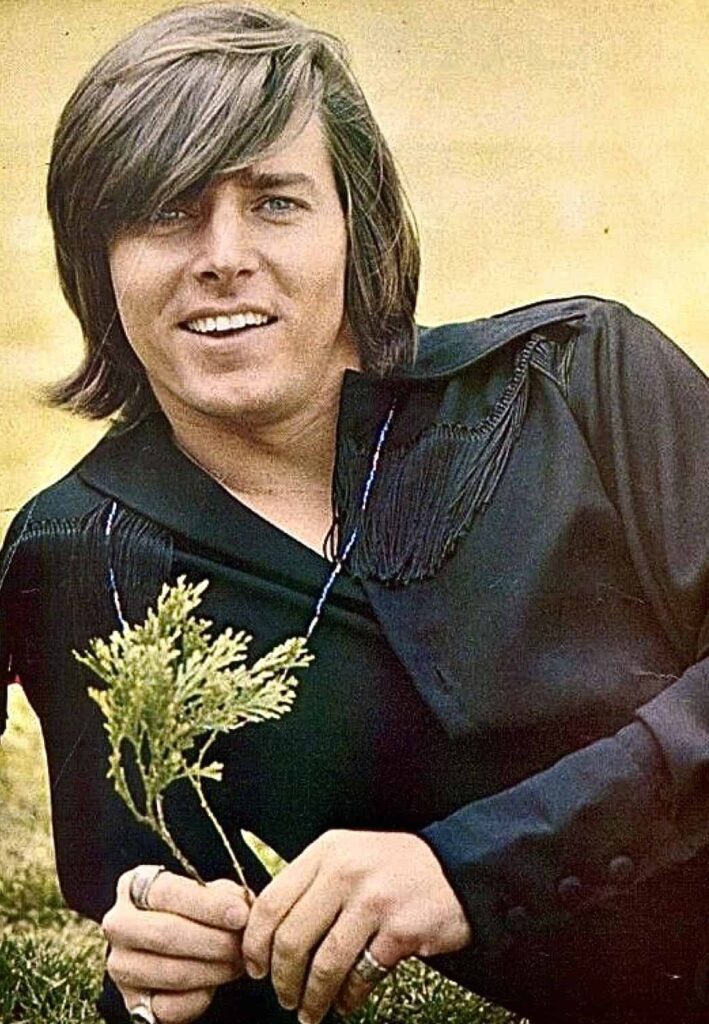
A Timeless Echo of Lost Love and Adolescent Longing
Ah, the late 1960s. A time of sweeping cultural shifts, of burgeoning counterculture, and for many of us, a period defined by the innocent yet potent emotions of youth. It was amidst this vibrant backdrop that Bobby Sherman, the quintessential teen idol with a boy-next-door charm and a voice that could melt hearts, released one of his most enduring and deeply felt ballads: “La La La (If I Had You).” This wasn’t just another pop tune; it was a phenomenon that captured the collective sigh of countless young romantics. Released in 1969, the song quickly ascended the charts, reaching a respectable number 9 on the Billboard Hot 100, cementing its place as a significant hit in Sherman‘s burgeoning career. For those of us who lived through it, its omnipresence on AM radio felt like a constant companion, a soundtrack to first crushes, lingering glances, and the bittersweet pangs of unrequited affection.
The story behind “La La La (If I Had You)” is, in many ways, the story of classic pop songwriting – a carefully crafted piece designed to resonate with a specific audience, yet possessing a universal appeal that transcended its initial demographic. While not directly penned by Sherman himself (it was written by the talented duo of Wes Farrell and L. Russell Brown), it felt as if it poured directly from his youthful heart. The song arrived during a period of intense popularity for Bobby Sherman, who had found mainstream success through his role on the television show Here Come the Brides. This visibility amplified the song’s reach, transforming it from a mere musical offering into a cultural touchstone. It was a time when Sherman‘s image, that of the earnest, slightly melancholic young man, perfectly aligned with the emotional landscape of the song. You could almost envision him, guitar in hand, crooning these very words to a beloved across a crowded room, or perhaps, to a photograph tucked away in a drawer.
At its core, the meaning of “La La La (If I Had You)” is a straightforward yet profound exploration of longing and the idealized vision of a love that remains just out of reach. The repetitive “la la la” might, on the surface, appear simplistic, but it serves a powerful purpose: it’s the hum of a heart overflowing with unexpressed desires, the vocalization of emotions too intense or perhaps too private to articulate directly. It speaks to that universal experience of imagining a perfect world with a specific person by your side – the “if I had you” serving as the crucial, yearning condition. The lyrics paint vivid, if understated, pictures of a life transformed by the presence of the beloved: “Every moment would be sunshine,” “No more lonely nights,” “No more tears.” This isn’t just about romantic love; it’s about the transformative power of connection, the belief that another person can fill the voids in our lives and bring an unparalleled sense of completeness.
For those of us who were navigating the often tumultuous waters of adolescence during that era, “La La La (If I Had You)” became an anthem. It gave voice to those quiet hopes and unspoken dreams that often lingered in the background of our daily lives. We’d play it on our record players, carefully dropping the needle, absorbing every note, every word. It wasn’t about intricate musicality or groundbreaking lyrical metaphors; it was about raw, relatable emotion, delivered with an earnestness that felt genuine. The arrangement, with its gentle strings and understated percussion, allowed Sherman’s vocals to take center stage, emphasizing the sincerity of his delivery. It wasn’t a demanding song; it was an inviting one, pulling you into its gentle embrace and allowing you to project your own hopes and dreams onto its tender melody. Even today, hearing those opening chords can transport you back, not just to a specific time, but to a specific feeling – the innocent optimism, the hopeful vulnerability, and the enduring power of a love imagined. It stands as a sweet, enduring testament to a bygone era, a melody that continues to resonate with the echo of youthful affection.